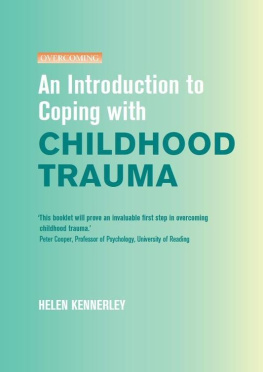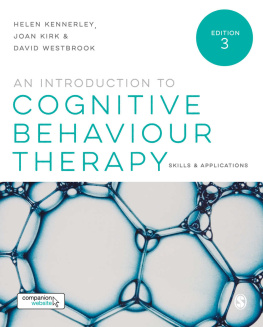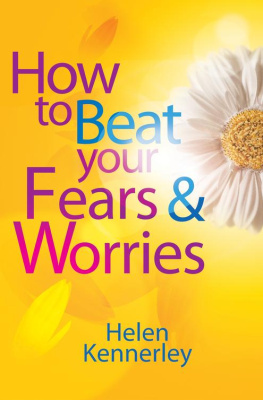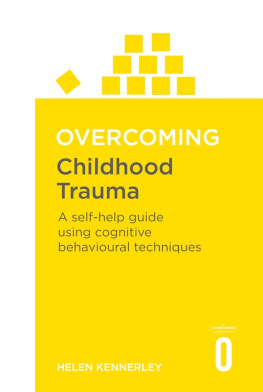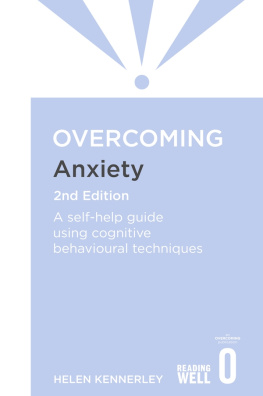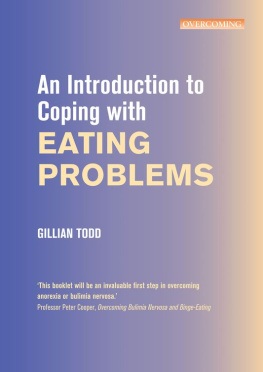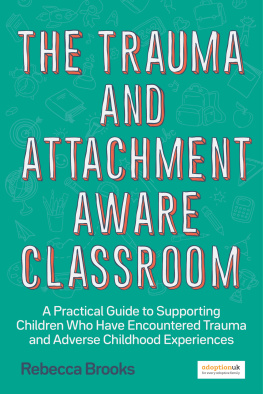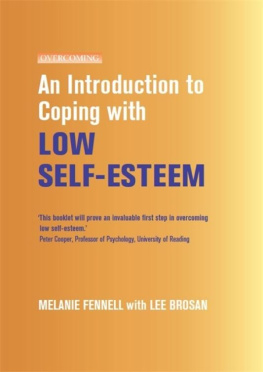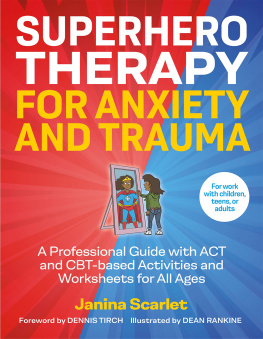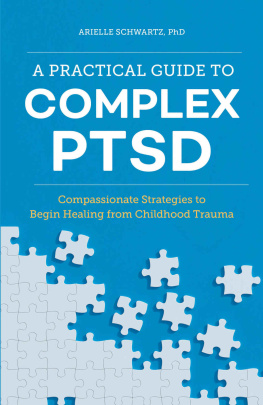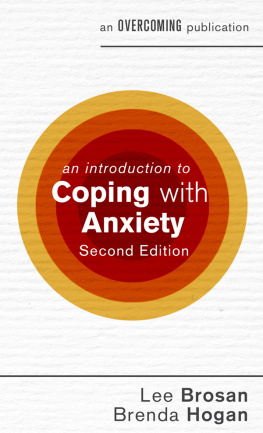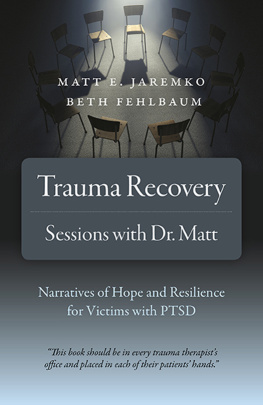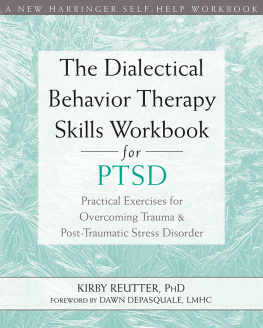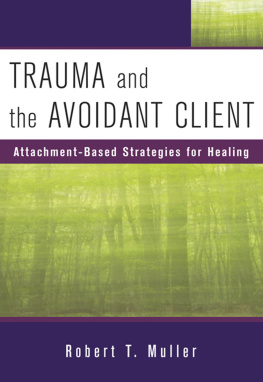This is a brief, readable resource for those who have been hurt or neglected as children. Although some survivors of childhood abuse and trauma seem to be able to cope as adults, it is not unusual for survivors to find that they have some difficulties perhaps with relationships , or with self-confidence and mood. It is not always easy just to put it all behind you, which is sometimes the advice given.
This booklet outlines the common problems which survivors might face and explains how they can be understood and how they can be managed. It will guide you through strategies designed to help you become more resilient and to help you become more skilled in dealing with stress, your mood and lifes challenges. It will also point you in the right direction to find out more about dealing with certain issues or difficulties if you feel that you want to develop specific ideas or skills further.
As you go through the booklet, you will see that you are encouraged to make links with your own experience, to complete exercises and to make notes. So it is a good idea to use a notebook then you will be able to collect together your thoughts and relevant experiences . This will then form a very personal reference for you to look over whenever you need to. You dont have to work through the whole booklet at once although it can be helpful to read it through just to get an overview of the process of recovery. It is probably best to pace yourself, taking sections at a time, getting familiar with coping strategies and giving yourself a chance to try them out before moving on to the next section.
Remember that very many people do recover from the traumas of childhood and take charge of their lives. Reading this booklet can be a first step in starting that recovery process.
Part 1: CHILDHOOD TRAUMA
AND ITS AFTERMATH
1 What is Childhood Trauma?
This seems like such a simple question yet there is much debate over what is meant by childhood trauma and opinions vary widely. However, this book is less concerned about defining past trauma, but more concerned with helping you learn ways of dealing with the problems it causes therefore dont feel that you will be held back if you cant be certain that your experiences fit a particular definition.
Despite the wide range of views about what childhood trauma is, there is agreement on some general points. We know that harm suffered at the hands of others, particularly people we know, is more traumatic than natural disasters and accidents. Its this inter-personal harm (damage caused by someone on another person they know) which we will address in this book. As a rule of thumb, the more personal the hurt, the more traumatic it is. There is also a general agreement that trauma caused by others falls into three categories:
Physical abuse or neglect.
Emotional abuse or neglect.
Sexual abuse.
Some people are surprised to see that neglect is regarded as abusive but we now recognize that neglect can be just as harmful as more obvious, direct abuse and it can so easily go unnoticed. In the past people tended to think that sexual abuse was the most damaging sort of abuse but research has shown us that all three types are potentially traumatizing. Research even suggests that emotional abuse might be particularly damaging as it reduces a childs self-confidence and sometimes even their sense of identity or self. Yet, it can be the most subtle form of abuse and not always easy to pin down. In some ways, talking about these distinctions can seem unnecessary as most victims of childhood trauma suffer a combination of abuses and neglect.
2 What Problems Might it Cause?
There is no specific problem which is linked with childhood trauma studies show that a history of childhood abuse can simply make a person more vulnerable to psychological problems. This does not necessarily mean that if youve suffered childhood abuse youll develop psychological problems, but you mightbe more vulnerable. In the clinic where I work as a clinical psychologist, we commonly see survivors of childhood abuse who suffer from post-traumatic stress disorder (PTSD) and who are troubled by vivid memories of their abuse, but we also see survivors who struggle with depression, or an eating disorder, or anxiety disorders, for example. The range of difficulties is wide, but the good news is that Cognitive Behaviour Therapy (CBT) can help with each of these problems. CBT is a practical and popular psychotherapy which has a successful record of helping people in distress to transform their lives through reviewing the way they think and act. There are many books in the Overcoming series, all of which are based on CBT, which can help you address specific problems (see the Other Things that Might Help section at the end of this booklet).
Despite the range of difficulties which survivors of childhood trauma face, there are some common issues and these tend to relate to:
Thinking and feeling (our inner world);
Ability to do things; and
Getting on with others.
Some of you might well feel OK about yourself , or feel confident enough to do the things you want to do, or you might get on well with others: that is not unusual as having a history of abuse does not necessarily sentence you to suffer and it would be wrong to assume that you will have problems as a result of earlier trauma. However, some of you might be struggling in some way and so well look at these common issues, some of which might be all too familiar.
Exercise:
Note how many of these issues you can relate to
Our Inner World
This refers to the way we think and feel. Traumatic experiences can leave you feeling more fearful or less hopeful than the average person. It can dent your self-esteem and even disrupt your sense of who you are. It is not unusual for survivors of trauma to feel vulnerable , worthless or unlovable, for example. Some are left with very powerful and upsetting emotions while, on the other hand, others feel numb and unable to feel things strongly.
A particularly common and undermining aspect of a survivors inner world are traumatic memories. These can plague you with vivid recollections which feel almost like reliving the trauma; they can be in the form of intrusive thoughts and images and they can occur as nightmares. Whatever form they take they are usually upsetting and, understandably, people often go to great lengths to avoid them. For example, a person might avoid revisiting a place which triggers the memories or use drugs, alcohol or food to keep them at bay. Some memories will have changed over time (as this is a normal process in memory) and the recollections might have become distorted in some way, while some memories will not have been laid down fully (another common occurrence during a traumatic experience) and so your recollection will be poor or fragmented bitty. This lack of ability to get a real feel for your own history can be frustrating and also very disturbing but it does not have to stop you from working on the problems in your day-to-day life.
Our Ability to Do Things
Childhood trauma is often linked with poor self-confidence so survivors might struggle to create or make the most of opportunities for themselves. You might strive extra hard to be seen to be clever or kind or attractive in order to make up for not feeling good about yourself . Childhood trauma is also often linked to difficulties in calming and soothing yourself. Many people grow up able to manage their moods, reassure themselves and recover from setbacks and disappointments, but for survivors of childhood abuse it can be very difficult to control strong emotions and you may find that you look for other ways to comfort yourself as best you can such as drinking, over-eating, over-working or even injuring yourself in an attempt to feel better. If you find that you do this, you are not alone and there are ways of overcoming this type of behaviour.

